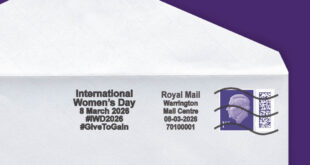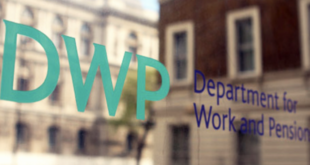As the cost-of-living crisis continues to squeeze household budgets, the Royal Mail has dealt another blow – a hefty increase in the price of standard first-class stamps. But money expert Martin Lewis has a savvy tip to help Brits dodge the rise.
The cost of standard first-class stamps will rise by an inflation-busting 22% to £1.65 from Monday, October 7, Royal Mail has confirmed – but there’s a way for Brits to sidestep the price increase.
Martin Lewis, founder of MoneySavingExpert.com, has advised Brits to stock up now, even if it’s just for Christmas card stamps for the next few years.
He said: “For years, every time stamps go up in price I’ve suggested people stock up and bulk-buy in advance, as provided the stamp doesn’t have a price on it and instead just says the postage class, it’s still valid after the hike. So you may as well stock up now, even if it’s just for Christmas cards for the next few Christmases.”
The cost of many Royal Mail services, including ‘Signed For’, ‘Special Delivery Guaranteed’ and ‘Tracked’, will also increase from October 7th, along with the price of sending parcels by first and second class.
“If you stock up on stamps now, be careful to avoid fakes,” Lewis cautioned. “Buy from reputable high street retailers and, where possible, hang onto your receipt. Stamps can also be purchased directly from the Royal Mail online shop, though a £50 minimum spend is required for free delivery.”
Earlier this year, Royal Mail paused the £5 penalty for receiving letters with counterfeit stamps, while it works to combat the issue. However, Lewis warned that “you may still face charges for using fake stamps when mailing items.”
The latest price hike follows previous increases in October 2023 and April 2024. First-class stamp prices rose by 14% in October 2023 (from £1.10 to £1.25) and then by a further 8% in April 2024 (to the current £1.35).
Royal Mail has attributed the stamp price rises to “increasing cost pressures” and its obligation to provide a universal service, delivering letters to all UK addresses six days a week. The company also noted that the number of addresses it serves has grown by four million since 2004/05.
“We always consider price increases very carefully. However, when letter volumes have declined by two-thirds since their peak, the cost of delivering each letter inevitably increases,” explained Nick Landon, Chief Commercial Officer at Royal Mail.
“A complex and extensive network is needed to get every letter and parcel across the country for a single price – travelling on trucks, planes, ferries and in some cases drones before it reaches its final destination on foot. We are proud to deliver the universal service, but the financial cost is significant.”
So if you want to avoid the sting of higher stamp prices, heed Martin Lewis’ advice and stock up now. As the money-saving expert said, “you may as well stock up now, even if it’s just for Christmas cards for the next few Christmases.”
Source link



